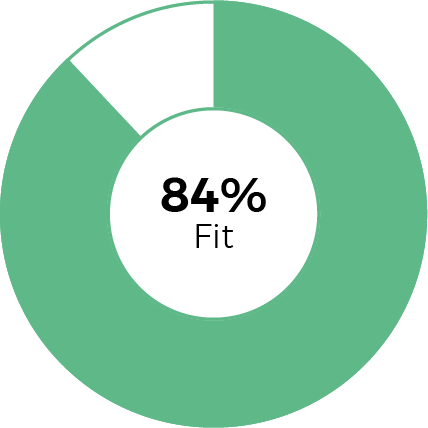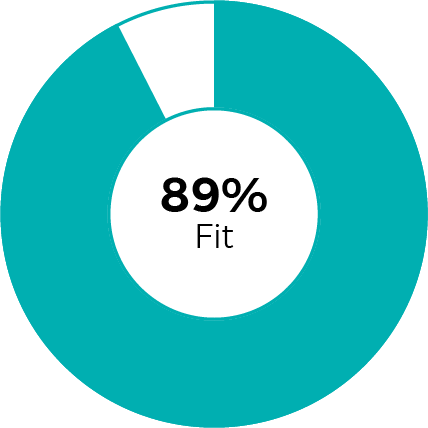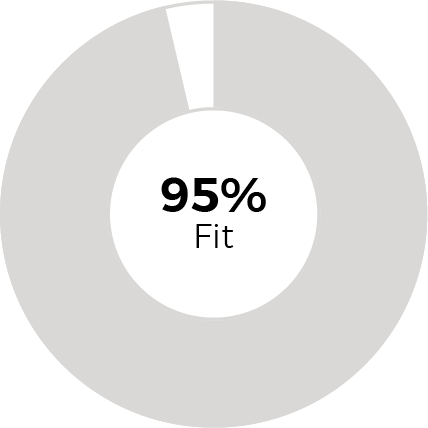
THINKING STYLE
"Can they do the job?"
Also known as cognitive ability, this is the number one predictor of success on the job. It defines how a person processes information for problem solving, communication, and learning skills. Learn how well the candidate matches the preferred verbal and numerical capabilities for the role. For example, can the candidate understand complex instructions? Can they efficiently make decisions based on complex numerical data?

BEHAVIORAL TRAITS
"How do they do the job?"
This portion of the assessment measures a person’s key tendencies and preferences across nine different behavioral traits as a measure for predicting future behavior. Learn, for example, if a candidate tends to be cooperative and work within the rules, or if they tend to set their own direction and act independently. Does the candidate tend to work at a steady pace, or do they tend to work very quickly? Is the candidate comfortable making quick decisions even when limited information is available, or do they prefer to make decisions more deliberately?

INTERESTS
"Will they enjoy the job?"
This section helps predict motivation and potential satisfaction with a given job. The more their interests align with what the job requires, the more they will enjoy it. This is critical, because we know that people who are happier in their jobs are more productive, more effective, and more engaged.